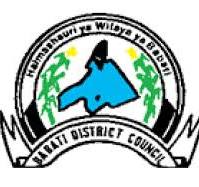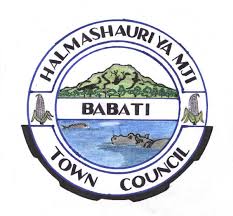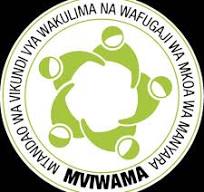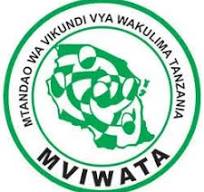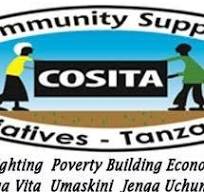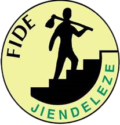What we do
We collaborate with local communities to alleviate extreme poverty !
We empowering women and youth, Improving crop production and livestock systems, promoting renewable energy, protecting and distributing village water supplies, supporting environmental conservation
Agriculture
To work and achieve its success in the targeted communities, FIDE emphasizes focusing on groups as the easiest way of controlling, monitoring, and evaluating the progress of its activities.
FIDE provides technical guidance and expertise to farmers, helping them improve agricultural practices, increase productivity, and adopt sustainable farming methods. This may include training programs, workshops, and agricultural extension services to disseminate best practices and innovations.
Currently, FIDE is focusing on increasing the value chain in pigeon peas, and sunflowers and increasing maize production.
In this activity, we targeted farmers in Babati district, Babati town council, Gairo District, Kondoa district, and Karatu District.
The activity involves;
- Capacity building for farmers on sustainable agriculture practices.
- Establishment of demonstration plots (Maize, Pigeon peas, and sunflower).
- Support farmers with maize seeds to establish and strengthen their Maize revolving seeds fund.
- Linkages farmers with input suppliers (fertilizer, seed producers, mechanization) and markets/buyers
The Activity was supported/funded by ;
RIKOLTO- Pigeon Peas
FARM AFRICA-Sunflower
HDT-Maize production and capacity building for farmers’ best practices.
HORIZONT 3000- Capacity building to farmers of farming best practices.
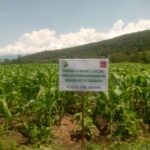
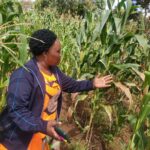
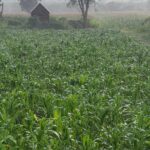
Livestock Development
FIDE is supporting low-income families with dairy cows to promote intensive dairy cattle keeping and increase the production of milk.
FIDE is supporting in terms of the construction of stables and equips farmers with skills on how to manage cows (including, establishing farms for growing pastures) and good husbandry practices. The community has now benefited from selling milk and improving their health through milk taking.
The communities that benefitted from dairy cow husbandry are Endagwe, Yarotonik,Hewasi,Endaberg, and Galapo villages but currently (2023-2024), we have supported farmers from Managha, and Gesbert villages, and more than 35 farmers expected to get dairy cows (Heifers) from FIDE.
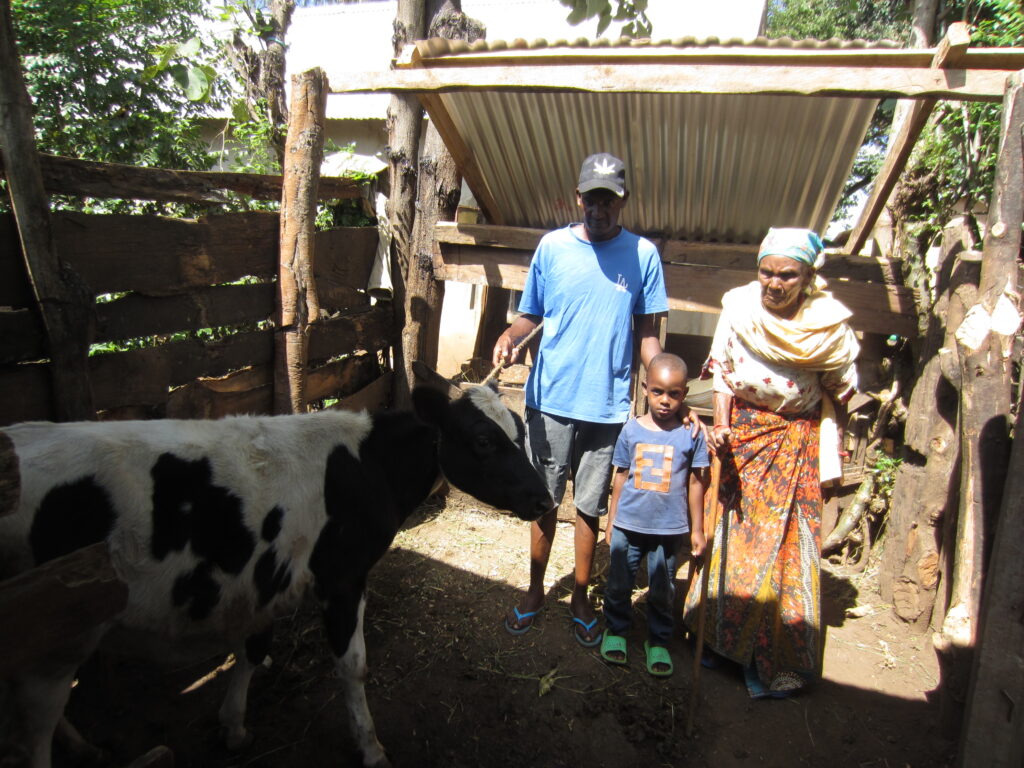
Promotion of Biogas Technology
Biogas technology in Tanzania has been increasingly adopted as a sustainable energy solution, particularly in rural areas where access to traditional energy sources may be limited. Biogas is produced through the anaerobic digestion of organic materials such as animal dung, agricultural residues, and food waste.
FIDE has played a crucial role in promoting the technology through support from various partners (SNV/TDBP-CARMATEC), WORLD VISION, and HDT. Whereby; more than 2500 biogas plants were installed.
Currently, FIDE is supporting farmers in Gesbert and Managha villages with biogas plant technology for 10 households.
The purpose was to mitigate deforestation and reduce greenhouse gas emissions by capturing methane, a potent greenhouse gas, produced during the decomposition of organic matter. To provide a renewable source of energy for cooking in rural households, reducing dependence on firewood and charcoal.
Water supply support
FIDE has supported water supply projects in areas where water is an acute problem especially in institutions(schools). It often hinders the development of other key development interventions in the community. The support includes; the construction of reservoir tanks, drilling of water well(s), and installation of the solar pump. Also, in the distribution of water to the nearby villages.
The schools that currently benefited from the water project are; Ayatsea Secondary, Yarotonik Primary School, Endagwe Secondary,Utwari Secondary, Ayaqanja Primary, and Gesbert Primary School.
The management body within the village was trained by RUWASA on how to manage water infrastructures and collect community contributions, the purpose was to ensure sustainability.
In the installation of solar pumps and solar power, FIDE consulted the Gadgetronix and Davis&Shirtlif who have experience and expertise in this field.
Also, FIDE has restored the water sources by encouraging the village government to prohibit any human activities near the water sources.
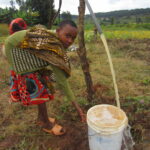
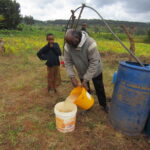
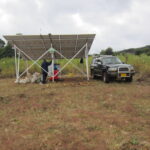
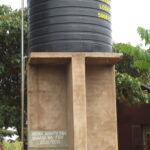
Women Empowernment
Income generating activities can assist women to be less reliant on their husbands and create their own income and increase their self-esteem. FIDE staff has encouraged women to engage in specific cheap and easy-to-manage economic activities, such as poultry keeping, horticulture, agro-processing, and small businesses.
This project is continuously and is funded by HORIZONT3000 and HDT
Poultry keeping
FIDE introduced a poultry management project to enhance rural households/families’ quality of life and economic stability.
Also, FIDE has offered training and knowledge in poultry management, which can lead to improved farming practices and increased productivity.
FIDE in the current years, is supporting farmers with chicks and inputs to empower women economically by improving health status.
Through HDT and the HORIZONT3000 Project, we have supported 80 farmers with a total of 3600 chicks. The villages that benefited are Ayasanda, Endanachan, Hoshan, Yarotonik, Nangara, Hewasi, Endaberg, Gesbert, Duru, and Getara villages in Babati district and Babati town council.
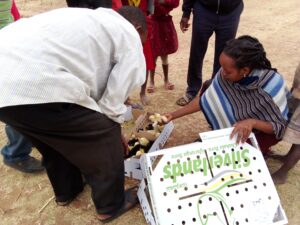 Ester from hoshan villages receive chicks
Ester from hoshan villages receive chicks
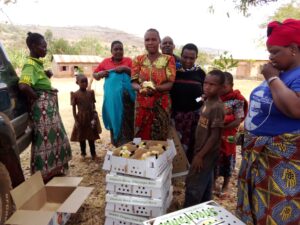 Women in Endaberg village is received chicks
Women in Endaberg village is received chicks
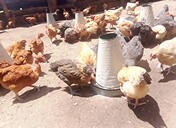
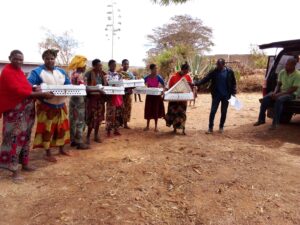
Village Savings and Loan (VSLA):
FIDE in empowering Women and Youths, has supported the community with the establishment of Village Community Bank (VSLA) and providing capacity building to farmers to carter the gap of getting financial assistance for their daily economic activities and for the household needs. Currently, we have supported farmers from the 3 wards of Babati through capacity building as well as linking with the other input suppliers and stakeholders such as the Bank, seed suppliers, buyers, etc. Ten (10) villages with a total of 600 hundred farmers benefitted from the VSLA in Ayasanda, Endanachan, Hoshan, Yarotonik, Duru, Getara, Gesbert, Hewasi and Endaberg. All 20 VSLA groups were taught about the management and supported on the registration process at District level so as they benefit from the different opportunities such as loans from the government. FIDE has cooperated with the government officers to deliver the knowledge to farmers and strengthen the cooperation between FIDE and the Government.
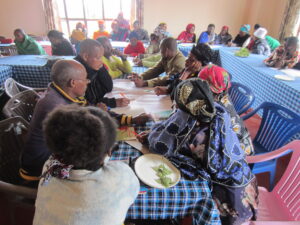
Farmers learn in practice, how to keep records.
Education
In line with national policy that accords education a principal role in development, FIDE puts due emphasis on the sector.
FIDE has supported the infrastructure in the school (classroom), teaching materials, and equipment. as well as children living in difficult conditions with uniform and school fees. At the time being has supported teachers with capacity-building (especially pedagogical skills).
FIDE has supported the schools with access to water, and improved wood savings stoves.
but in previous years, FIDE has supported the community in terms of the construction of 11 classrooms, 3 preschool classrooms, a dining hall, a kitchen, and teachers’ houses in various schools. Given the high rate of youth unemployment due to lack of skills FIDE has supported the establishment of a vocational training center at which youths are trained in basic masonry, carpentry tailoring, and
embroidery. Also, more than 100 students benefitted from this program.
From year 2001 FIDE started supporting the first batch of 26 orphans with school fees, uniforms, stationery, and textbooks. In 2007 FIDE started supporting another group of 75 such orphan students. This time FIDE widened its net of support to include bicycles, mattresses, and uniforms to the few in more difficult conditions.
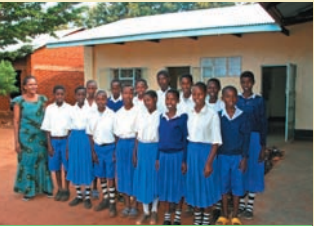
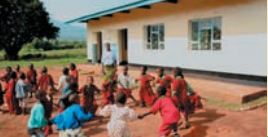
Our Partners
